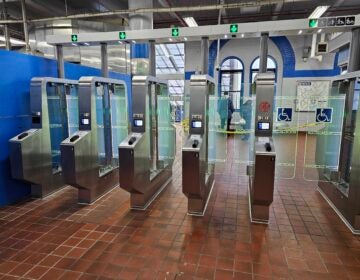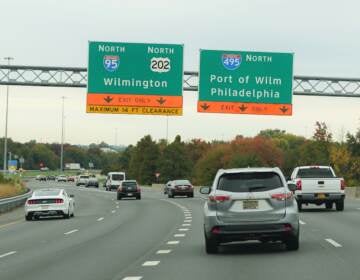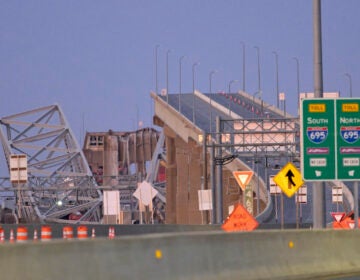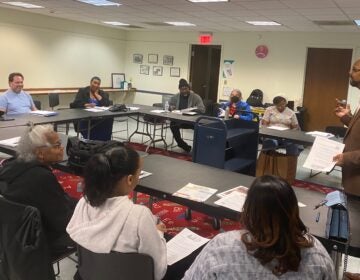As Indego gets in gear, bike-share entrepreneur says Philly learned from other cities’ trials
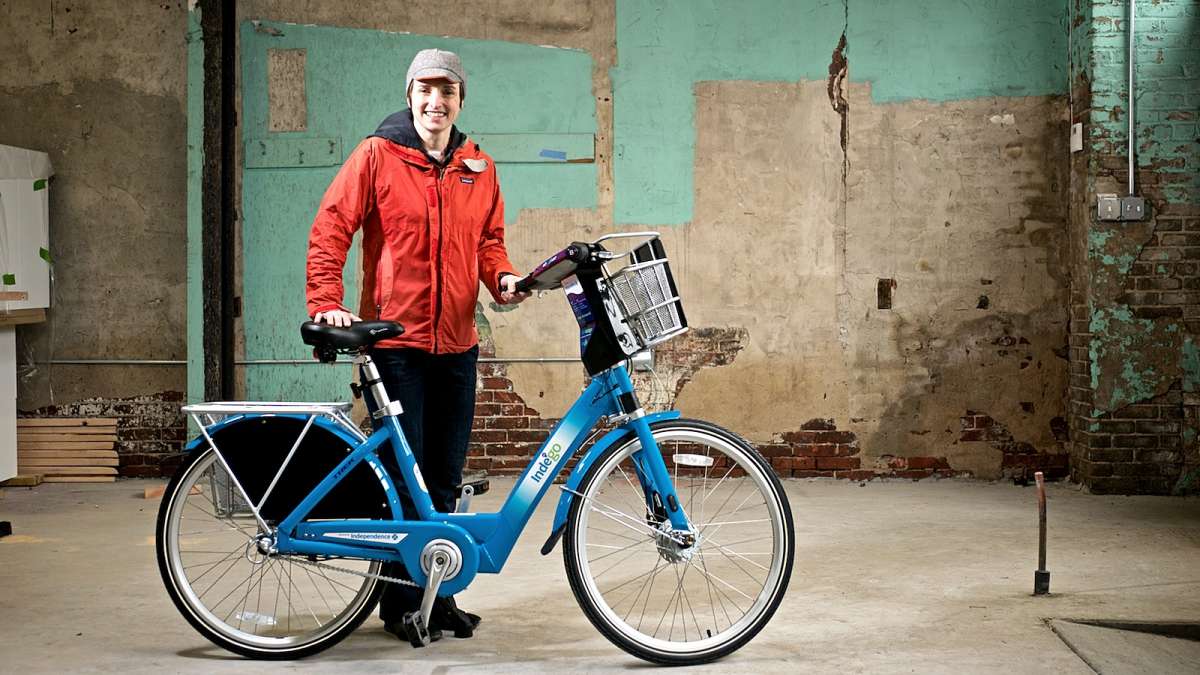
On an overcast morning, a trio of bike mechanics stands in a cluster at the back of a mostly vacant, brick warehouse in Kensington.
Mostly vacant, because behind the group sits a sea of cardboard boxes containing all kinds of parts, including hundreds of bright-blue bike frames.
Before the month is out, the building will become the headquarters of Indego, the city’s brand-new bike-share program.
Today, contractors pop in and out, but the only bike-related activities are the mechanics emptying all those boxes as they put together the fleet — 600 three-speed bikes across 70 docking stations to start.
The zips from their ratchets and the clinks from their screwdrivers are music to bike entrepreneur Alison Cohen’s ears during her first visit to the North Fifth Street space.
“There are three major rail stations and the subway system is only a ‘T.’ So there are all these areas of the city that aren’t well served by the city’s public transit,” says Cohen near a pair of framed-out rooms.
To be sure, Indego is backed by dollars from the city, state and federal government as well as Independence Blue Cross, the program’s lead sponsor. But the network itself, a product of multiple private partnerships, is Cohen’s brainchild. And, more specifically, Bicycle Transit Systems, the Mt. Airy resident’s nascent company.
Bringing bike share to Philly
Cohen, though, is no stranger to bike-share programs.
Indego is her company’s first, but she’s helped launch or had a hand in four others since 2007 — big ones. The list includes Melbourne, Australia; Washington, D.C.; Boston and New York.
It’s an impressive list — one even Cohen can’t quite believe sometimes, especially considering her previous life as an environmental consultant.
Still, Philly’s program may be closet to her heart. She’s lived here off-and-on since she was a kid.
“All this time, there was a disappointment that I was able to do this work in other cities, yet Philadelphia is sort of sitting on the sidelines,” says Cohen.
She says there have been some benefits to waiting.
For starters, Cohen thinks Philadelphia is ready for the program at this point. She’s not saying the tension between bikers and drivers has disappeared, but she certainly thinks it’s less intense.
“Overall, even over the past few years, our culture, not just in Philly, has changed towards bikers,” she says.
Learning lessons
The time also, not surprisingly, gave Cohen valuable experience. Perhaps most importantly, she was able to approach Philly’s program knowing what fell flat elsewhere.
In New York, Cohen teamed up with a company who sub-contracted the software work — the brains of every bike-share program.
Midway through the project, that company changed what’s known as “back-end” software.
“And they did not allow enough time to have that launch in a system the size of New York. The launch was delayed almost a year and there were a lot of bumps and there still remains bumps,” says Cohen.
In Philly, Cohen — and the city — also wanted to make sure Indego was truly designed to serve people in low-income neighborhoods, not just wealthy ones and tourist locales.
Cohen says that was not the case in Washington, D.C.
“The mayor made a commitment to have stations in every ward. So it was spread out and it was in many neighborhoods. However, the density and the bike infrastructure in some of those neighborhoods wasn’t strong so the ridership has been really weak,” she says.
To help ensure that doesn’t happen here, residents will have the option of getting a 30-day cash membership instead of putting a credit card on file.
They’ll have to provide a valid email and home address before paying in person at either a 7-Eleven or Family Dollar store.
If a bike is stolen, that information will be used to track down the member who never returned it.
The program also has received some grants to help cover losses, which Cohen expects to be minimal overall.
“Typically, about half a percent of the bikes is a loss rate. It’s something that we plan for,” she says.
Pedaling ahead
The future of the program is a little less certain.
Over the next couple of years, Cohen wants it to grow from 600 bikes to 2,000. Additional funding, she says, will be needed to put that vision into gear.
Still, when Cohen thinks about the endless possibilities for ridership, she feels good about it all.
“One person might be a tourist who came into town and wants to go from Independence Mall over to Penn or something like that. One person might be a commuter who takes the regional rail in who works in a hospital in the Graduate Hospital area and they ride from 30th Street Station. Another person may live in North Philly and needs to ride downtown,” she says.
Not to mention the waiter or cook wanting a cheap way to get to and from the restaurant at odd hours.
Cohen’s confidence grows still when she considers how easy the city is to navigate. Yes, bikers will have to learn to share the road. But, in her mind, what could be simpler than a big flat grid?
WHYY is your source for fact-based, in-depth journalism and information. As a nonprofit organization, we rely on financial support from readers like you. Please give today.
As Indego gets in gear, bike-share entrepreneur says Philly learned from other cities’ trials
Listen-
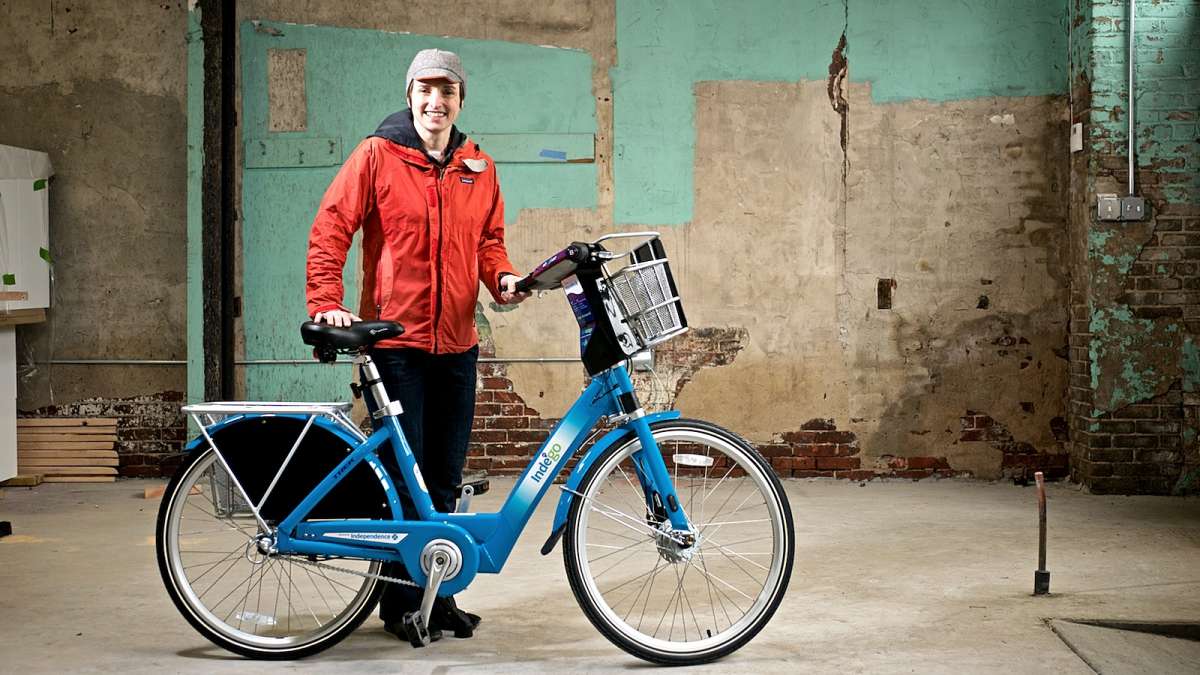
Check back this week to learn about Mt. Airy resident Alison Cohen's involvement in Philly's new bike share program. (Bas Slabbers/for NewsWorks)
-
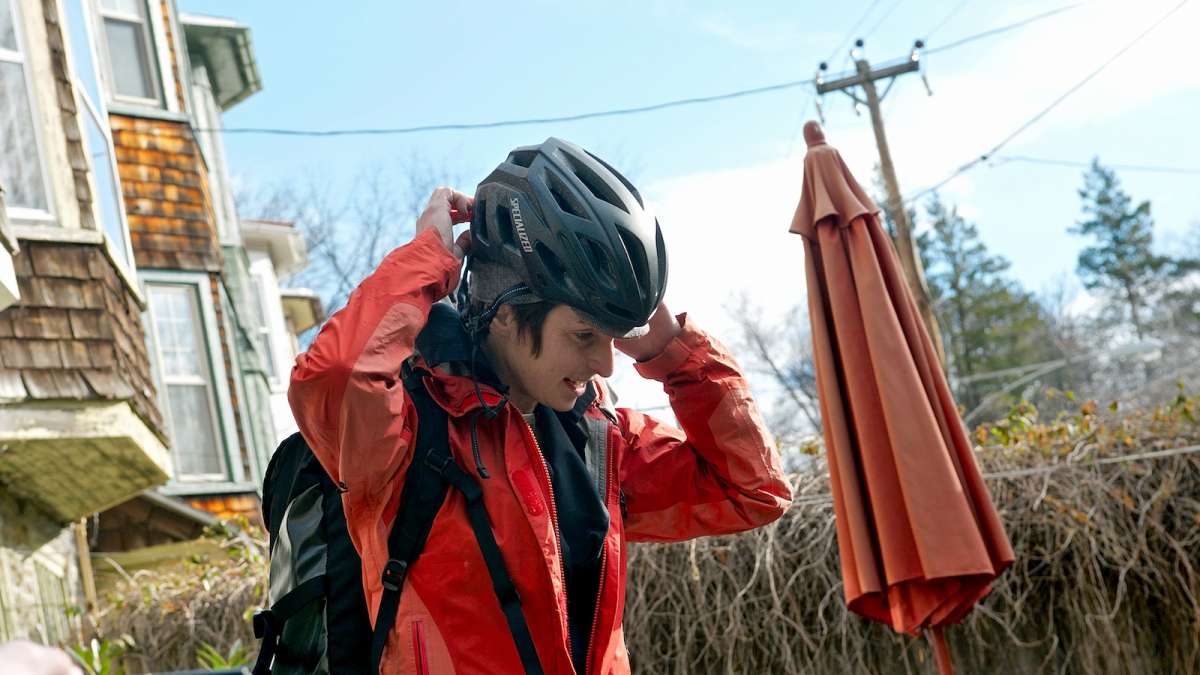
Alison Cohen leaves her Mt. Airy home for a 45-minute commute to Northern Liberties. (Bastiaan Slabbers/for NewsWorks)
-
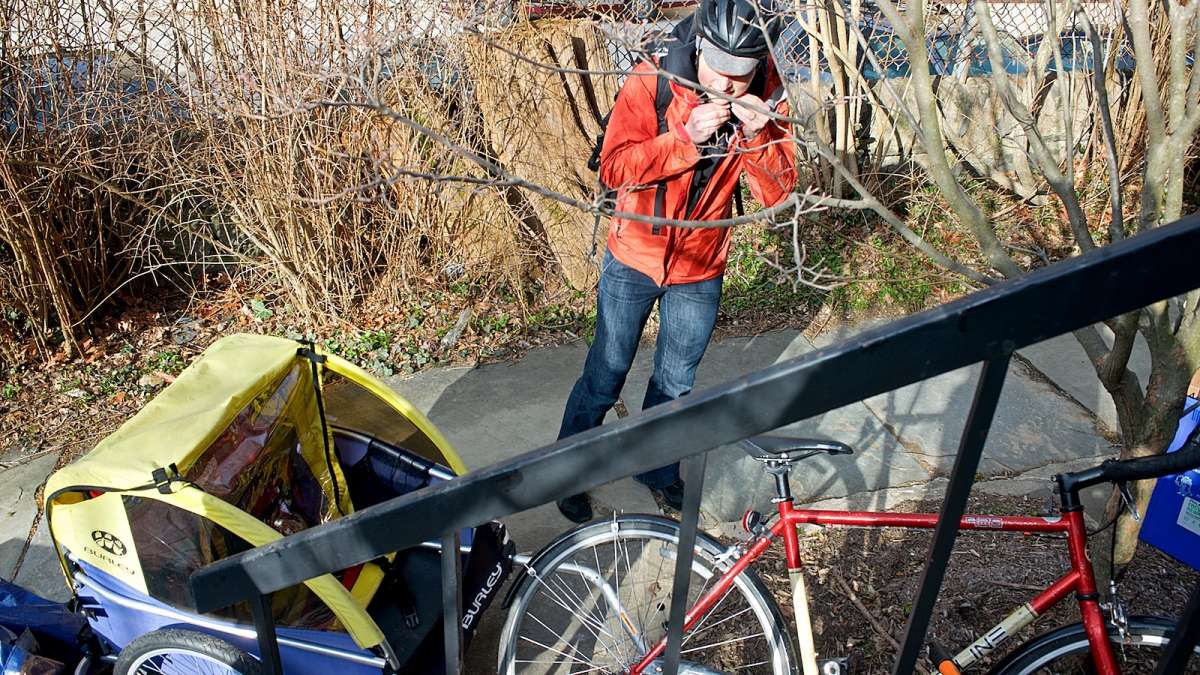
Alison Cohen leaves her Mt. Airy home for a 45-minute commute to Northern Liberties. (Bastiaan Slabbers/for NewsWorks)
-
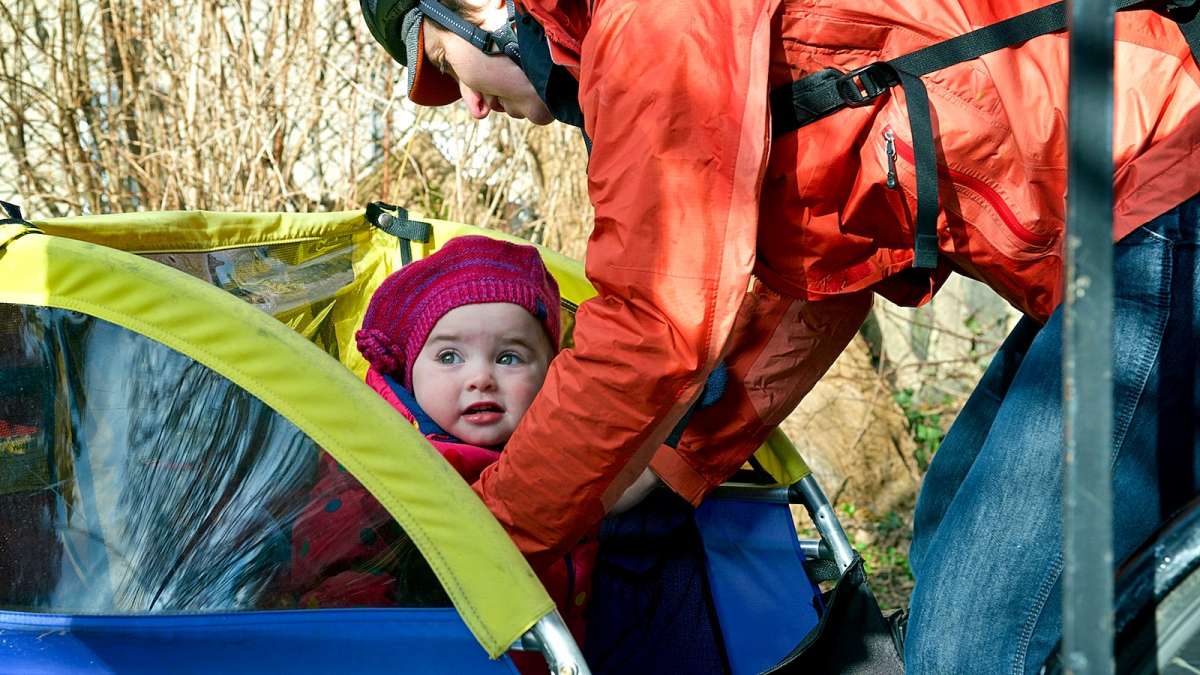
Alison Cohen leaves her Mt. Airy home for a 45-minute commute to Northern Liberties. (Bastiaan Slabbers/for NewsWorks)
-
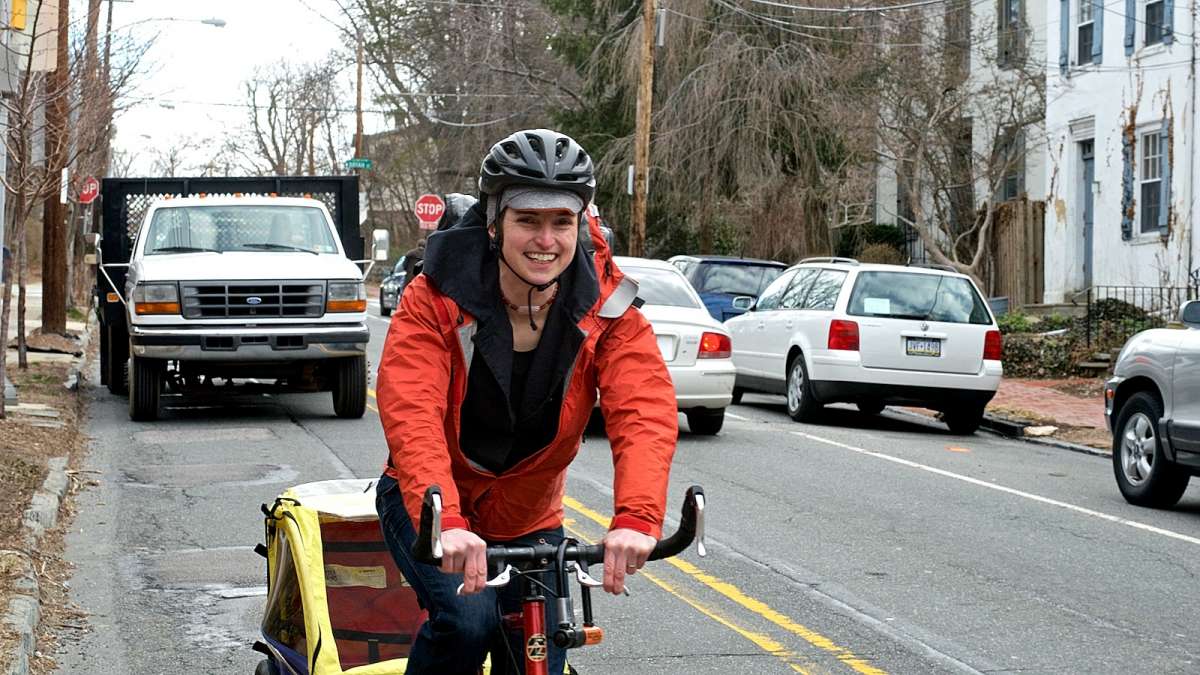
Alison Cohen leaves her Mt. Airy home for a 45-minute commute to Northern Liberties. (Bastiaan Slabbers/for NewsWorks)
-
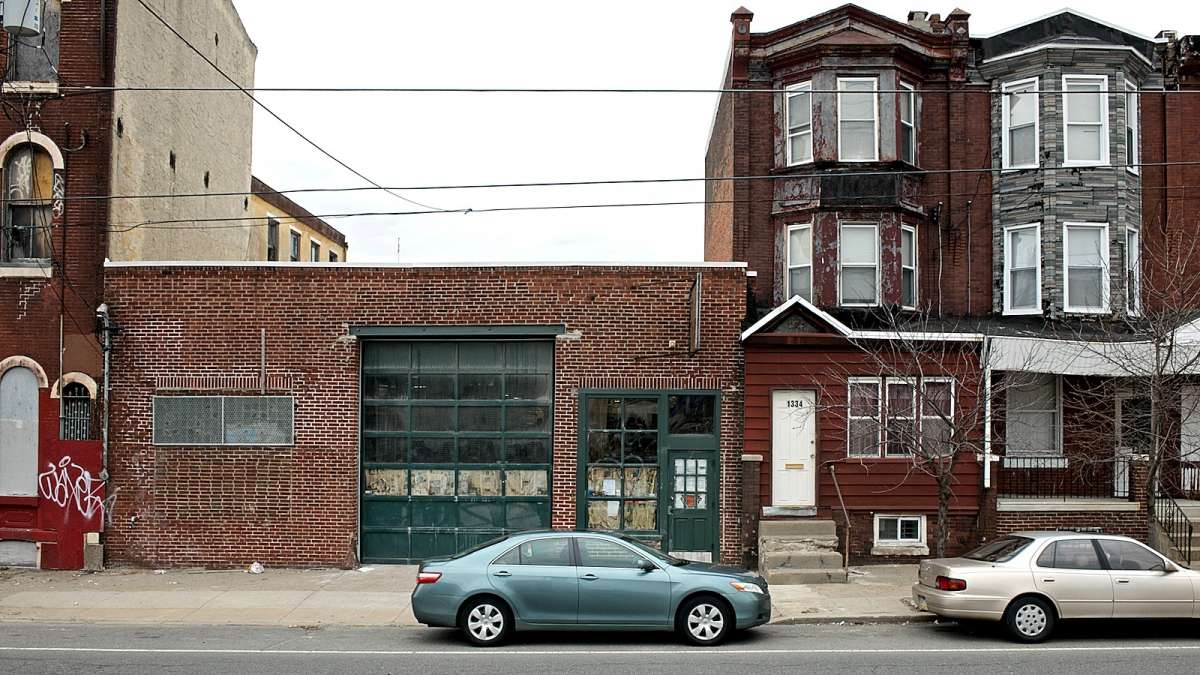
The Philly Bike Share warehouse on North Fifth Street. (Bastiaan Slabbers/for NewsWorks)
-
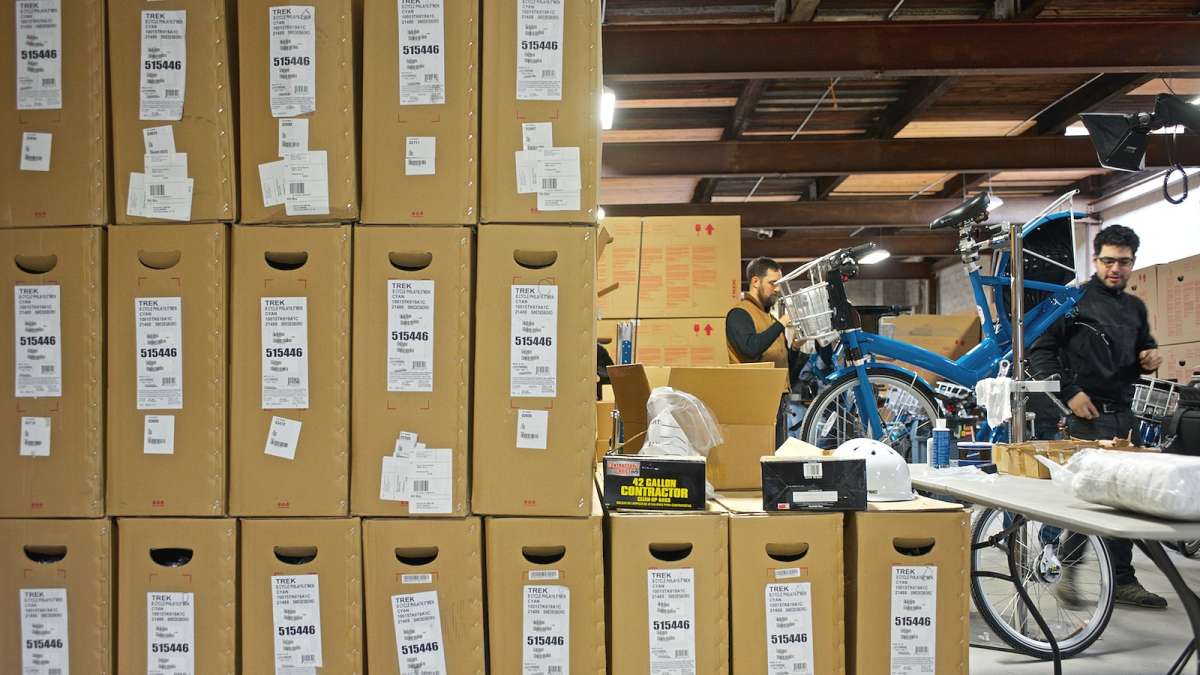
Hundreds of bikes in boxes wait to be assembled by a team of mechanics. (Bas Slabbers/for NewsWorks)
-
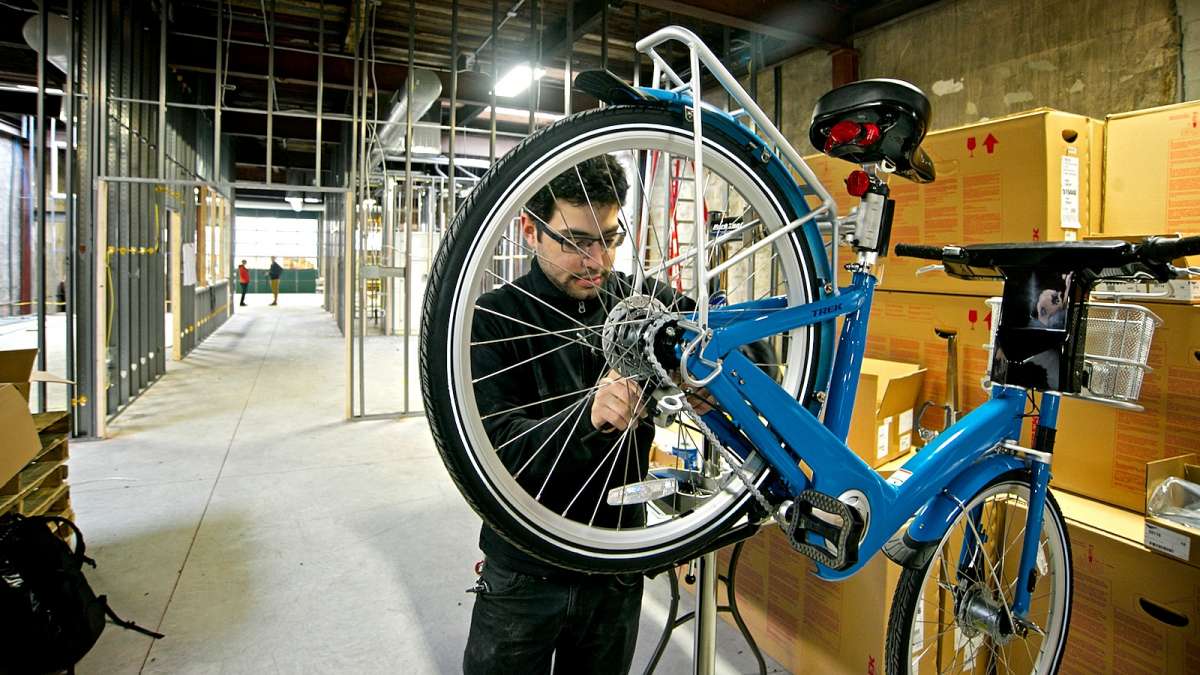
Avid cyclist and head mechanic Jake Siemiarowski. (Bastiaan Slabbers/for NewsWorks)
-
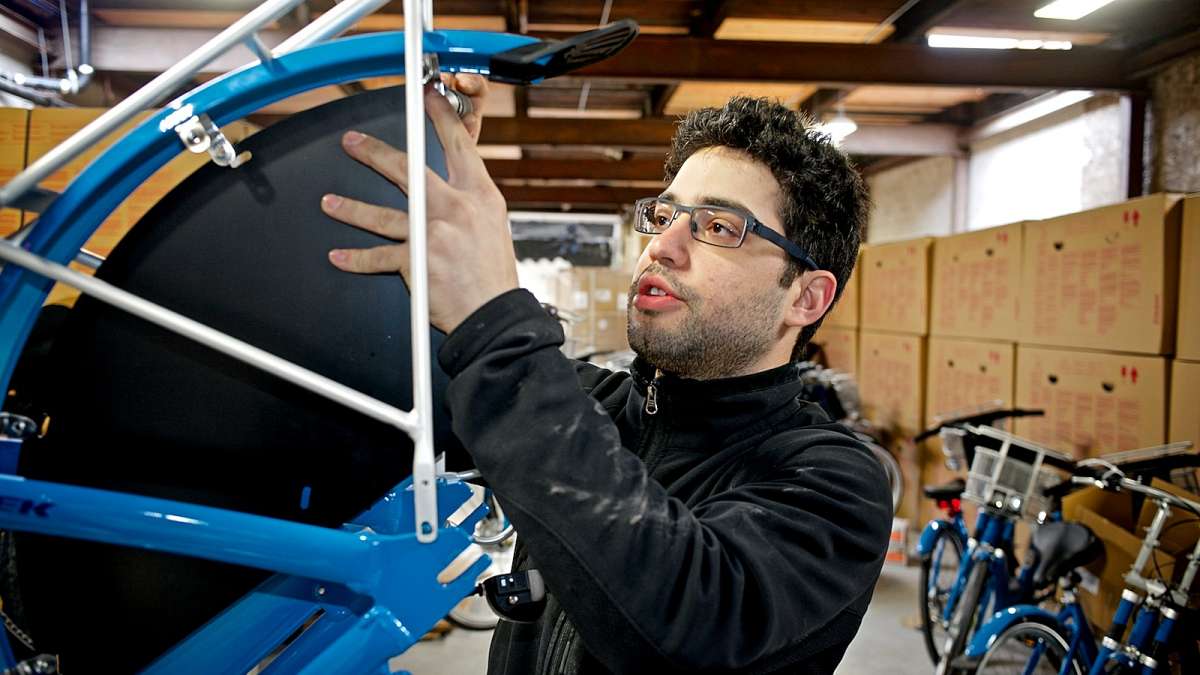
Avid cyclist and head mechanic Jake Siemiarowski. (Bastiaan Slabbers/for NewsWorks)
-
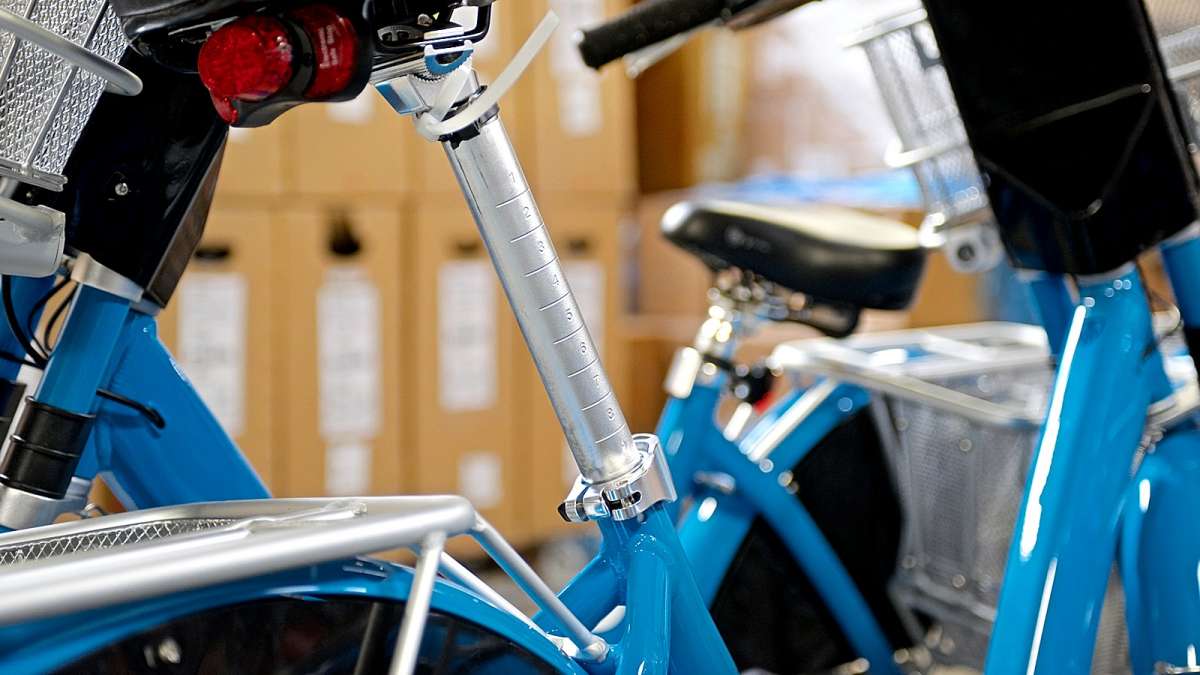
The bikes come in one-size-fits-almost-everyone. The seat is easily adjustable for the proper height. (Bastiaan Slabbers/for NewsWorks)
-
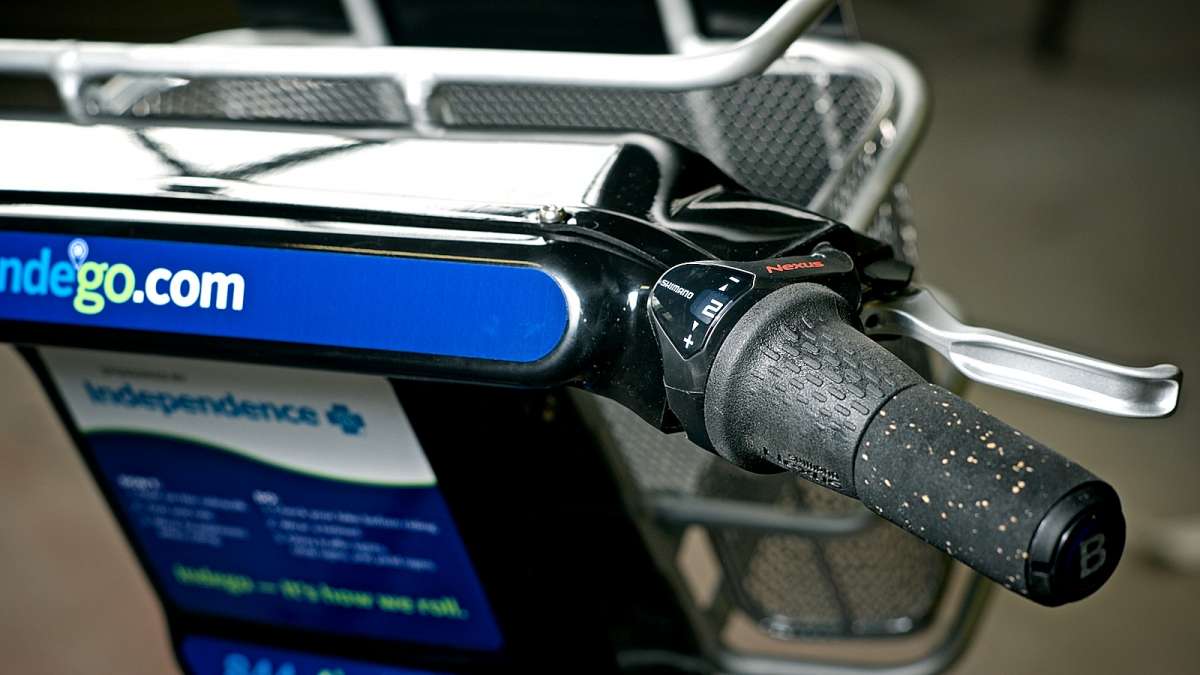
A twist of the wrist changes gears in the hub in the rear wheel. (Bastiaan Slabbers/for NewsWorks)
-
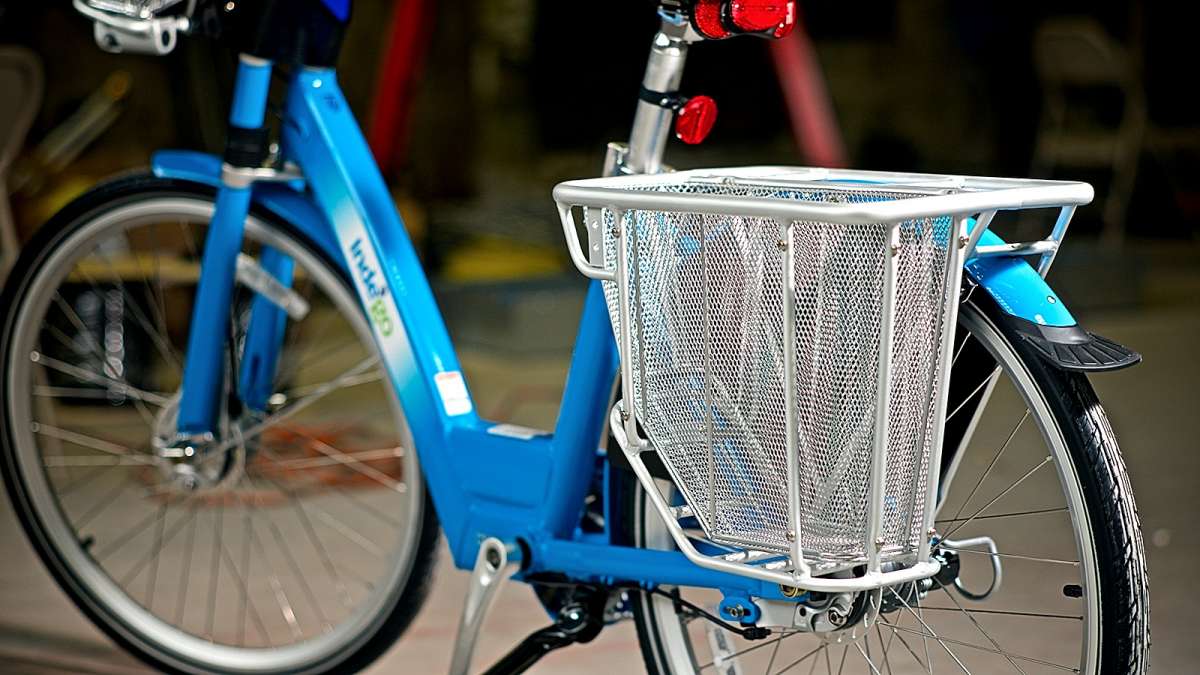
Sturdy aluminum carriers are mounted at the rear of the bike. (Bastiaan Slabbers/for NewsWorks)
-
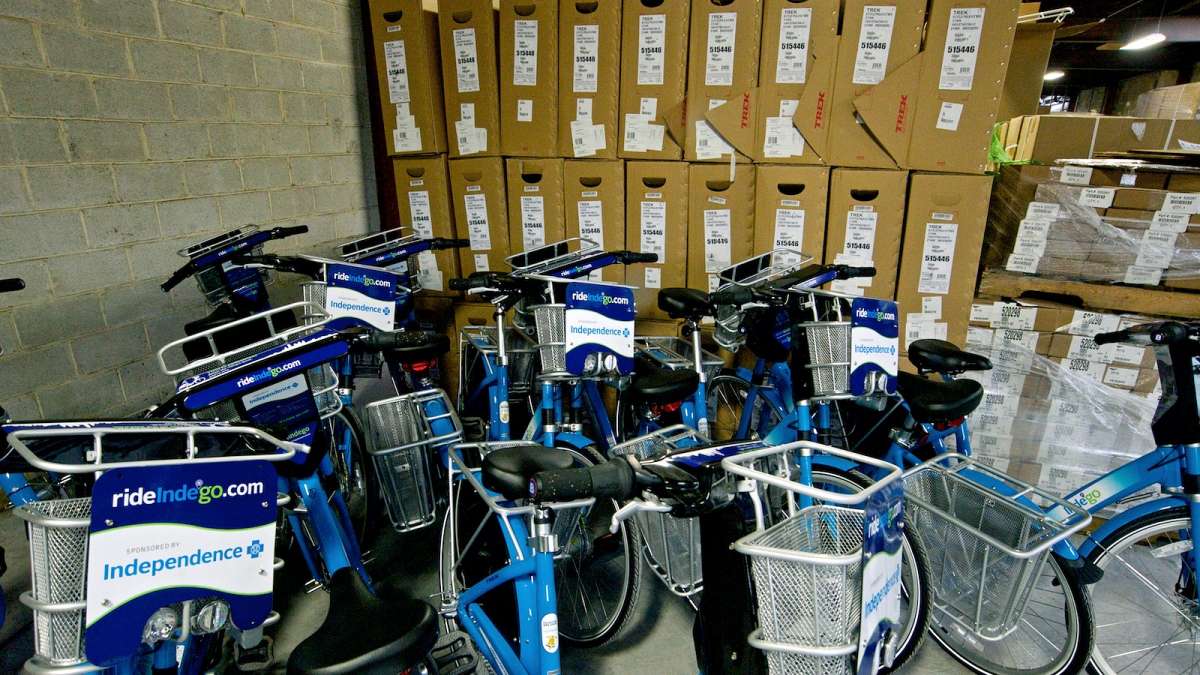
In the back of the warehouse a group of finished Indego bikes wait to be used. (Bastiaan Slabbers/for NewsWorks)
-
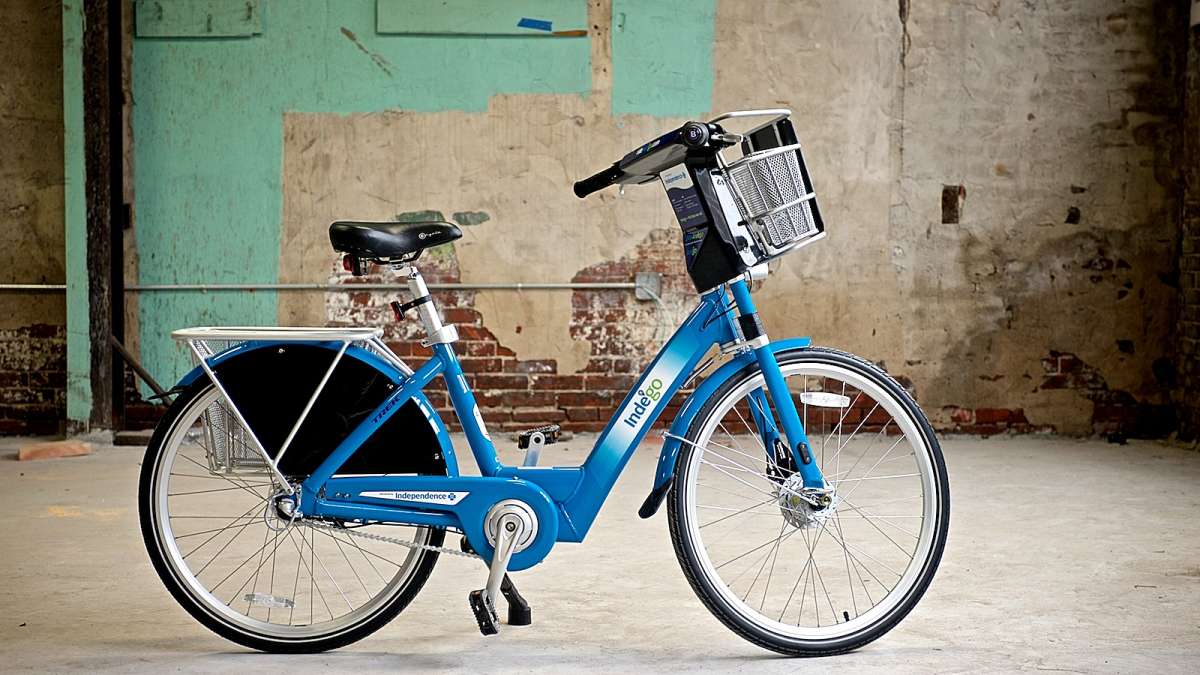
On an overcast morning, a trio of bike mechanics stands in a cluster at the back of a mostly vacant, brick warehouse in Kensington.
Mostly vacant, because behind the group sits a sea of cardboard boxes containing all kinds of parts, including hundreds of bright-blue bike frames.
Before the month is out, the building will become the headquarters of Indego, the city’s brand-new bike-share program.
Today, contractors pop in and out, but the only bike-related activities are the mechanics emptying all those boxes as they put together the fleet — 600 three-speed bikes across 70 docking stations to start.
The zips from their ratchets and the clinks from their screwdrivers are music to bike entrepreneur Alison Cohen’s ears during her first visit to the North Fifth Street space.
“There are three major rail stations and the subway system is only a ‘T.’ So there are all these areas of the city that aren’t well served by the city’s public transit,” says Cohen near a pair of framed-out rooms.
To be sure, Indego is backed by dollars from the city, state and federal government as well as Independence Blue Cross, the program’s lead sponsor. But the network itself, a product of multiple private partnerships, is Cohen’s brainchild. And, more specifically, Bicycle Transit Systems, the Mt. Airy resident’s nascent company.
Bringing bike share to Philly
Cohen, though, is no stranger to bike-share programs.
Indego is her company’s first, but she’s helped launch or had a hand in four others since 2007 — big ones. The list includes Melbourne, Australia; Washington, D.C.; Boston and New York.
It’s an impressive list — one even Cohen can’t quite believe sometimes, especially considering her previous life as an environmental consultant.
Still, Philly’s program may be closet to her heart. She’s lived here off-and-on since she was a kid.
“All this time, there was a disappointment that I was able to do this work in other cities, yet Philadelphia is sort of sitting on the sidelines,” says Cohen.
She says there have been some benefits to waiting.
For starters, Cohen thinks Philadelphia is ready for the program at this point. She’s not saying the tension between bikers and drivers has disappeared, but she certainly thinks it’s less intense.
“Overall, even over the past few years, our culture, not just in Philly, has changed towards bikers,” she says.
Learning lessons
The time also, not surprisingly, gave Cohen valuable experience. Perhaps most importantly, she was able to approach Philly’s program knowing what fell flat elsewhere.
In New York, Cohen teamed up with a company who sub-contracted the software work — the brains of every bike-share program.
Midway through the project, that company changed what’s known as “back-end” software.
“And they did not allow enough time to have that launch in a system the size of New York. The launch was delayed almost a year and there were a lot of bumps and there still remains bumps,” says Cohen.
In Philly, Cohen — and the city — also wanted to make sure Indego was truly designed to serve people in low-income neighborhoods, not just wealthy ones and tourist locales.
Cohen says that was not the case in Washington, D.C.
“The mayor made a commitment to have stations in every ward. So it was spread out and it was in many neighborhoods. However, the density and the bike infrastructure in some of those neighborhoods wasn’t strong so the ridership has been really weak,” she says.
To help ensure that doesn’t happen here, residents will have the option of getting a 30-day cash membership instead of putting a credit card on file.
They’ll have to provide a valid email and home address before paying in person at either a 7-Eleven or Family Dollar store.
If a bike is stolen, that information will be used to track down the member who never returned it.
The program also has received some grants to help cover losses, which Cohen expects to be minimal overall.
“Typically, about half a percent of the bikes is a loss rate. It’s something that we plan for,” she says.
Pedaling ahead
The future of the program is a little less certain.
Over the next couple of years, Cohen wants it to grow from 600 bikes to 2,000. Additional funding, she says, will be needed to put that vision into gear.
Still, when Cohen thinks about the endless possibilities for ridership, she feels good about it all.
“One person might be a tourist who came into town and wants to go from Independence Mall over to Penn or something like that. One person might be a commuter who takes the regional rail in who works in a hospital in the Graduate Hospital area and they ride from 30th Street Station. Another person may live in North Philly and needs to ride downtown,” she says.
Not to mention the waiter or cook wanting a cheap way to get to and from the restaurant at odd hours.
Cohen’s confidence grows still when she considers how easy the city is to navigate. Yes, bikers will have to learn to share the road. But, in her mind, what could be simpler than a big flat grid?
WHYY is your source for fact-based, in-depth journalism and information. As a nonprofit organization, we rely on financial support from readers like you. Please give today.





